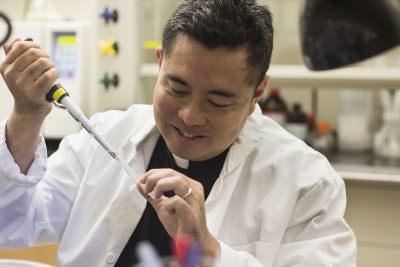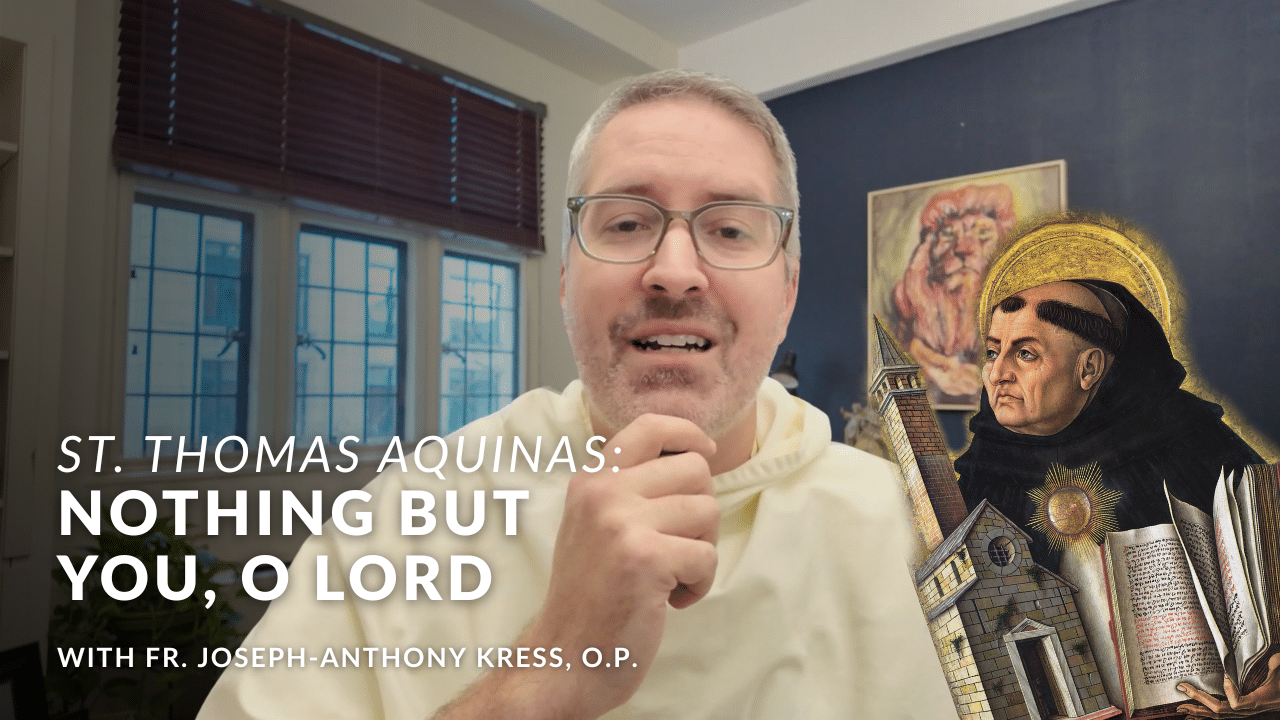By Fr. Nicanor Austriaco, O.P., S.T.D, Ph.D.

Fr. Nicano Austriaco, O.P. Photo by Melissa Brown
I was struck by the attempts of these New York Times reporters to dismiss or minimize the impact of the possible use of hydroxychloroquine (HCQ) to treat COVID-19.
As a molecular biologist, what is so exciting for me about this claim is that the clinical trial in France was pretty good, given the extreme circumstances. Yes, it was a small trial, but if you read the paper, it was rigorous for what it wanted to do, which is to be a pilot study. And it showed that HCQ significantly shortened the time for the patient to clear virus from his or her system.
Also noteworthy, a previous paper from a lab in China — again, it is so important that these are independent investigations — demonstrated that hydroxychloroquine can prevent viral reproduction in a test tube.
And they were able to provide a mechanism of action for this anti-viral activity, and it is a reasonable one. (For molecular biologists, mechanism makes all the difference in the world!) Briefly, it alters the pH of the parts of the cell necessary for viral reproduction.
The Chinese biologists made a prediction in their paper about patient use: “Therefore, with a safe dosage, HCQ concentration in the above tissues is likely to be achieved to inhibit SARS-CoV-2 infection.” This is a prediction that appears to have been borne out in the clinical study in France.
I am hopeful because the clinical study seems robust and it is backed up with molecular evidence for anti-viral function.
Finally, HCQ is very cheap and readily available: With a prescription, I could walk down the street to a Filipino pharmacy to buy a 200mg pill for PHP85 (which is the equivalent of $1.30). I know that they have it because I checked online. And this is in a random pharmacy in Manila! According to the study, taking three of these pills every day for six days would rid you of SARS-CoV2. And the side-effects for short-term use of HCQ are minimal. This for about $30.
In the end, despite what the NYT says, I am very optimistic about this development. I think that the headline is misleading. Yes, there is minimal evidence but that is not unexpected in a pandemic. But the minimal evidence is actually pretty solid, given the practical limits of doing clinical trials in a global crisis.
Yet, when both in vitro and in vivo studies converge, that is an optimistic sign. Especially when you have a mechanism of action that is reasonable and is in line with what we know about viral reproduction.
Finally, yes, it has to be tested by the FDA. But that is the point! But instead of poo-pooing this scientific discovery, I am going to pray that this will bear much fruit!
Scientific Papers:
CLINICAL TRIAL: https://www.mediterranee-infection.com/hydroxychloroquine-…/
IN VITRO WORK: https://www.nature.com/articles/s41421-020-0156-0






